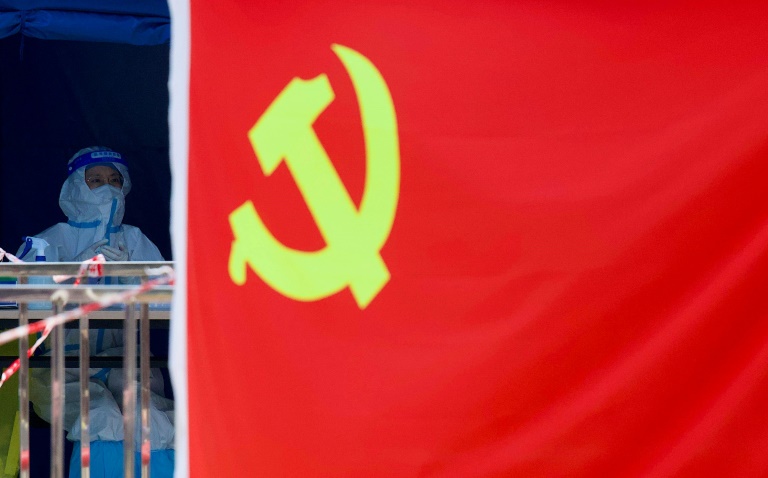Asian markets up after Wall Street battering over recession fears

Chinese economic data showed the woes inflicted from Beijing’s strict zero-Covid policy, with retail sales and factory production slumping to its lowest in over two years
Hong Kong – Asian markets opened higher Friday, as bargain-hunters capitalised on the battering Wall Street took the day before after decades-high inflation sparked recession fears.
Downcast earning reports from retailers have heightened uncertainty in the world markets at a time of rising interest rates, surging energy prices, China’s Covid lockdowns and Russia’s ongoing war in Ukraine.
Leading indices have see-sawed at even the slightest anticipation of volatility — or relief — and the risk of a global recession is “top-of-mind” for investors, said Stephen Innes of SPI Asset Management.
“But as the procession to recession shortens, growth concerns are rising, leaving equities vulnerable to the negative feedback loop,” he added.
“What would typically be met with a shoulder shrug, incrementally weaker data can now amplify downside move. And with few positive developments of late, the market remains vulnerable to the prevailing narrative, with the negative feedback loop only growing louder in recent sessions.”
Wall Street had a tough run this week, thanks to back-to-back earnings misses from Walmart and Target which revealed difficulties managing rising costs, as well as weaker-than-expected Chinese economic data.
– China cuts key interest rate –
On Friday morning, China announced it would lower its five-year loan prime rate — a key interest rate governing how lenders base their mortgage rates — from 4.6 percent to 4.45 percent.
The move will help reduce mortgage costs, serving as a boost for demand as China undergoes a property slump and its economy bleeds from stopped ports and factories due to Covid lockdowns.
But Chaoping Zhu, a Shanghai-based global market strategist with JP Morgan Asset Management, said that strong fiscal stimulus “is also expected” given persistent headwinds to growth.
“In addition to the conventional approaches including infrastructure investment and tax deduction, direct subsidies or cash payout to consumers may be adopted to stabilize domestic demand and employment,” he said.
Data released this week from China showed the extent of economic pain inflicted by Beijing’s strict zero-Covid policy, with retail sales and factory production slumping to its lowest in over two years.
The unemployment rate also climbed in April to 6.1 percent — the highest in more than two years.
Asian markets opened up Friday, with Seoul, Hong Kong, Tokyo, and Singapore all seeing a one percent boost.
– Key figures at around 0230 GMT –
Hong Kong – Hang Seng Index: UP 2 percent at 20,523.61
Shanghai – Composite: UP 0.9 percent at 3,126.56
Tokyo – Nikkei 225: UP 1.2 percent at 26,712.36 (break)
Brent North Sea crude: DOWN 1.1 percent at $110.86 per barrel
West Texas Intermediate: DOWN 1.1 percent at $110.98 per barrel
Euro/dollar: DOWN at $1.0562 from $1.0586 at 2030 GMT Thursday
Pound/dollar: DOWN at $1.2451 from $1.2473
Euro/pound: DOWN at 84.83 pence from 84.84 pence
Dollar/yen: UP at 128.10 yen from 127.80
New York – Dow: DOWN 0.8 percent at 31,253.13 (close)
London – FTSE 100: DOWN 1.8 percent at 7,302.74 (close)
